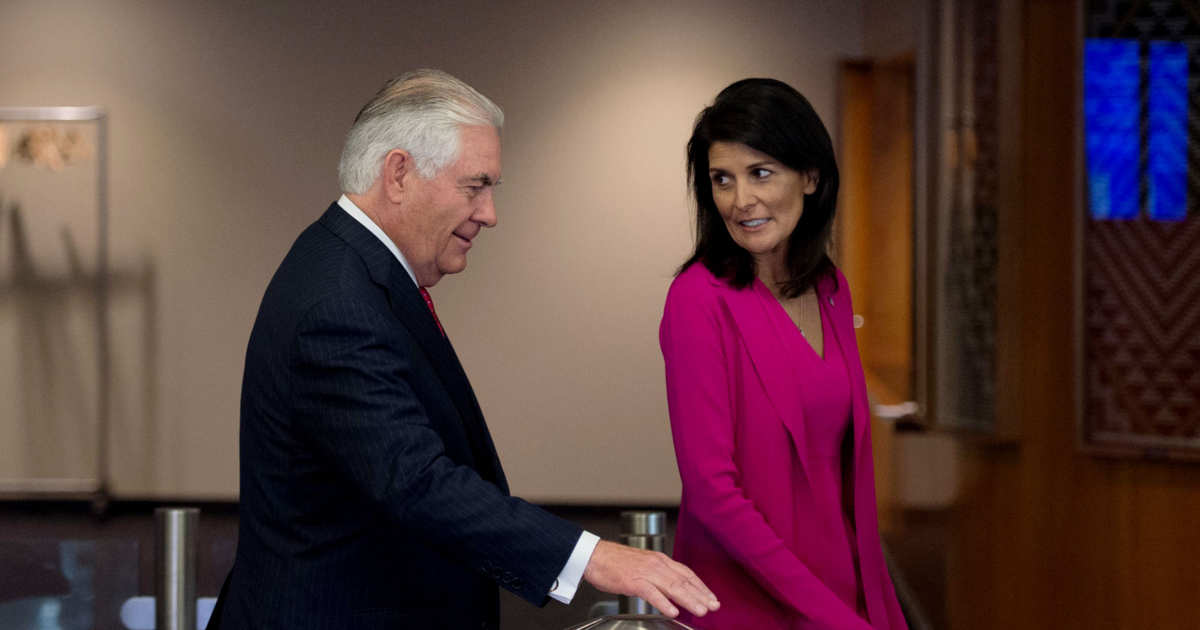Is Trump’s Mideast policy a paradigm shift?
The president has worked on repairing America’s relationship with Israel and articulating the radical Islamist threat. These gains may be rendered moot, however, if he endorses the ill-informed State Department report.
by Matthew M. Hausman

Ambassador Nikki Haley has been a breath of fresh air since taking up diplomatic residency at the United Nations. Unlike her immediate predecessors, Haley has been unapologetic in asserting the role of the United States as a global leader. Since beginning her tenure at the UN, she has helped lay to rest the Obama policy of “leading from behind” which for eight years served to compromise relationships with US allies and create a power vacuum that facilitated Russian and Chinese aggression, empowered Islamic radicalism, enabled the proliferation of terrorism, and assured the nuclearization of Iran. In addition, she has supported Israel without qualification and condemned the UN’s pervasive culture of anti-Semitism.
But is this restatement of priorities to be taken at face value, or does it signal a paradigm shift with respect to Mideast foreign policy?
Many hoped after the Six-Day War in 1967 that Israel could trade land for peace and achieve comity with her Arab neighbors. However, any overtures were preempted a few months later at the Arab League Summit at Khartoum, which resolved that there would be no peace, no negotiations, and no recognition of Israel. This consensus was fractured somewhat by the Camp David Treaty between Egypt and Israel, but most Arab-Muslim nations adhered to the “three no’s” until well into the 1990s. Egyptians, too, have never acknowledged Israel as the ancient Jewish homeland.
The paradigm shifted in 1993 with the Oslo Accords, which effectively validated Palestinian Arab national identity. Israel thereafter was expected to acknowledge the authenticity of a Palestinian narrative that denied Jewish history and promoted anti-Semitism. The advent of Oslo gave rise to the slogan “two states for two peoples,” though only one of those peoples had a documented existence and connection to the land since antiquity. Whereas Jewish nationhood goes back 3,500 years and is corroborated by the historical, archeological and scriptural records, the Palestinian narrative is only about fifty years old and has no similar foundation. It is a post-modern political designation predicated on revisionism and a repudiation of Jewish history. Nonetheless, proponents of Oslo sanctified the myth with the expectation that Israel would do the same.
CONTINUE READING AT http://www.israelnationalnews.com/Articles/Article.aspx/20795